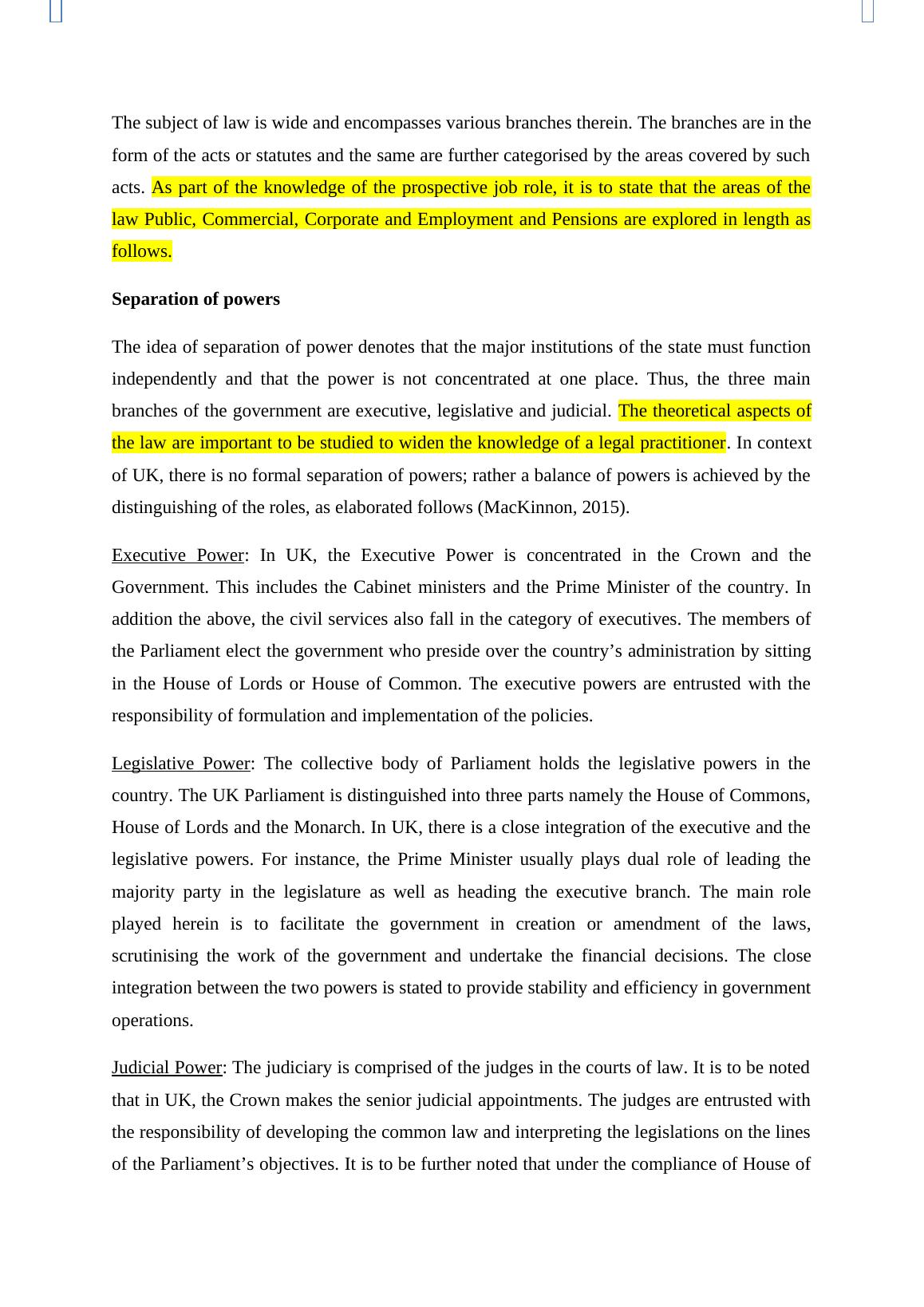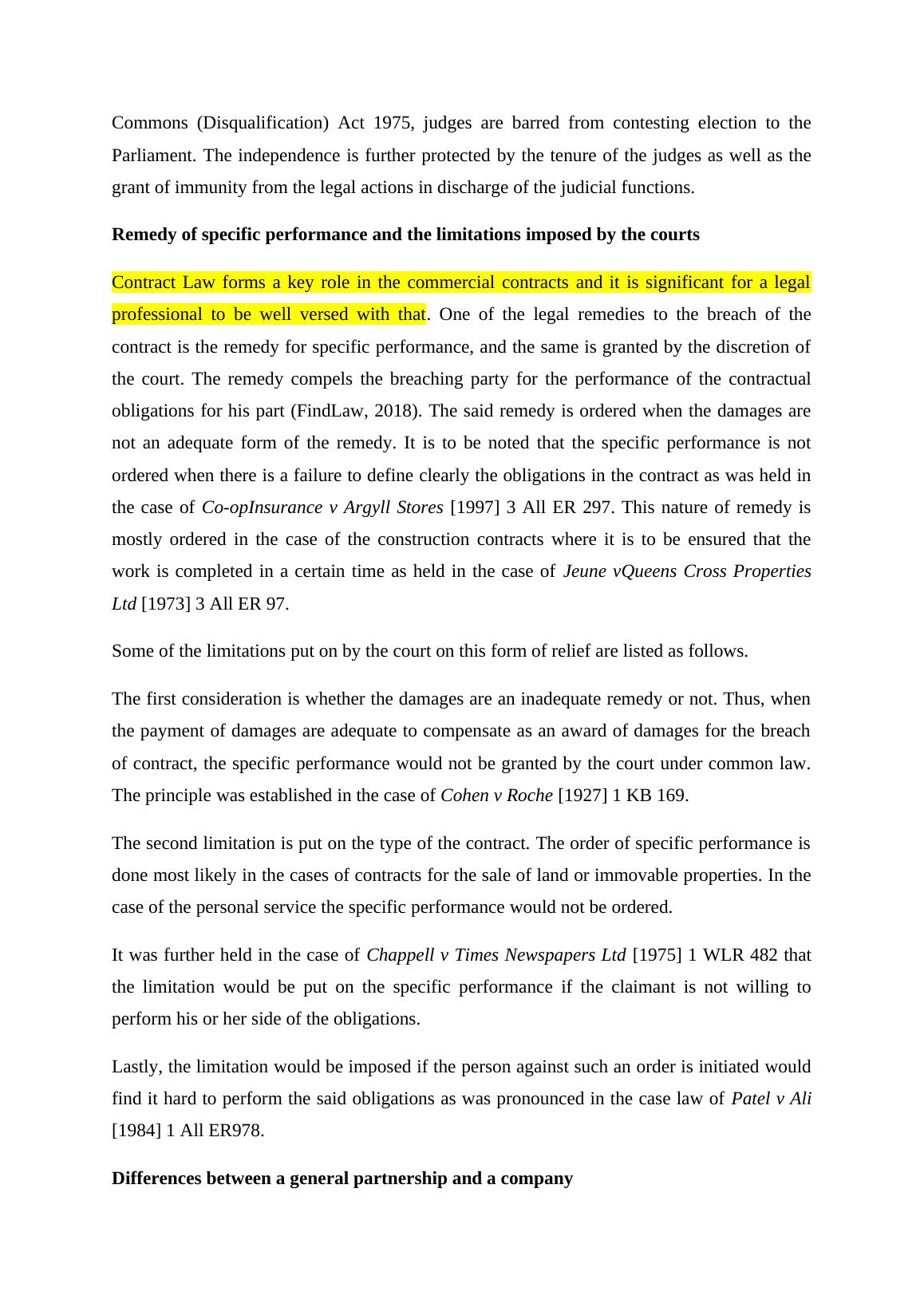Assignment about Law and Ethics
Demonstrate an understanding of the fundamentals of the English legal system, company and business law. Understand company and business law, corporate governance and ethical issues within an international context.
6 Pages1986 Words13 Views
Added on 2022-09-14
About This Document
individual easy please use , UK language in writing . and easy structures like as : title at the beginning , introduction main boady ,summarise conclusion etc
Assignment about Law and Ethics
Demonstrate an understanding of the fundamentals of the English legal system, company and business law. Understand company and business law, corporate governance and ethical issues within an international context.
Added on 2022-09-14
ShareRelated Documents
End of preview
Want to access all the pages? Upload your documents or become a member.
Role of Three Main Organs of Government and Specific Performance Remedy
|7
|1904
|341
Separation of Powers and the Functions of Government Organs
|7
|1705
|228
Legal Issues in Business: Understanding the English Legal System and Justice System
|8
|2517
|414
Business Law and Ethics
|7
|1999
|88
Introduction to UK Law
|7
|1569
|34
Separation of Powers in Public Law
|12
|3946
|134



